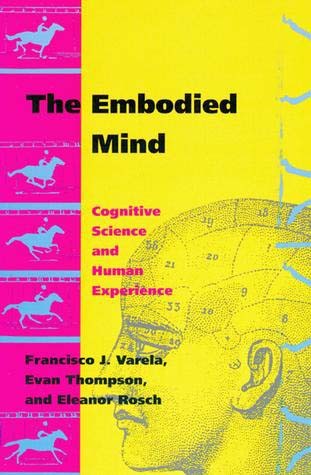Peter H. Kahn, Jr: Technological Nature: Adaptation and the Future of Human Life (2011)
Filed under book | Tags: · animal, cognition, engineering, nature, robotics, technology

Our forebears may have had a close connection with the natural world, but increasingly we experience technological nature. Children come of age watching digital nature programs on television. They inhabit virtual lands in digital games. And they play with robotic animals, purchased at big box stores. Until a few years ago, hunters could “telehunt”—shoot and kill animals in Texas from a computer anywhere in the world via a Web interface. Does it matter that much of our experience with nature is mediated and augmented by technology? In Technological Nature, Peter Kahn argues that it does, and shows how it affects our well-being.
Kahn describes his investigations of children’s and adults’ experiences of cutting-edge technological nature.He and his team installed “technological nature windows” (50-inch plasma screens showing high-definition broadcasts of real-time local nature views) in offices on his university campus and assessed the physiological and psychological effects on viewers. He studied children’s and adults’ relationships with the robotic dog AIBO (including possible benefits for children with autism). And he studied online “telegardening” (a pastoral alternative to “telehunting”).
Kahn’s studies show that in terms of human well-being technological nature is better than no nature, but not as good as actual nature. We should develop and use technological nature as a bonus to life, not as its substitute, and reenvision what is beautiful and fulfilling and often essentially wild in our relationship with the natural world.
Publisher MIT Press, 2011
ISBN 0262113228, 9780262113229
230 pages
PDF (updated on 2012-8-1)
Comment (0)Francisco Varela, Evan T. Thompson, Eleanor Rosch: The Embodied Mind: Cognitive Science and Human Experience (1991)
Filed under book | Tags: · body, cognition, cognitive science, connectionism, mind, neuroscience, perception, phenomenology, philosophy, psychoanalysis, self

“Although the scientific study of the mind has developed rapidly in recent years, it has devoted little attention to human cognition understood as everyday lived experience. The Embodied Mind corrects this imbalance within cognitive science by providing a deep and sophisticated treatment of the spontaneous and reflective dimensions of human experience. Varela, Thompson, and Rosch argue that it is only by having a sense of common ground, between mind in science and mind in experience that our understanding of cognition can be more complete. To create this common ground they develop a dialogue between cognitive science and Buddhist meditative psychology and situate this dialogue in relation to other traditions, such as phenomenology and psychoanalysis.
The dialogue proceeds in five parts. The first introduces the two partners and explains how the dialogue will develop. The second presents the computational model of mind that gave rise to cognitive science in its classical form. The authors show how this model implies that the self is fundamentally fragmented and introduce the complementary Buddhist concept of a nonunified, decentralized self. The third shows how cognitive science and Buddhist psychology provide the resources for understanding how the phenomena usually attributed to a self could arise without an actual self. The fourth presents the authors’ own view of cognition as embodied action and discusses the relevance of this view for cognitive science and evolutionary theory. The fifth considers the philosophical and experiential implications of the view that cognition has no foundation or ground beyond its history of embodiment and explores these implications in relation to contemporary Western critiques of objectivism and the nonfoundationalist tradition of Buddhist philosophy.”
Publisher MIT Press, 1991
ISBN 0262720213, 9780262720212
328 pages
PDF (updated on 2020-4-17)
Comments (3)Computational Culture, a Journal of Software Studies, Issue One: A Billion Gadget Minds (2011)
Filed under journal | Tags: · cognition, hardware, machine, networks, neuroaesthetics, software, software studies
Computational Culture is an online open-access peer-reviewed journal of inter-disciplinary enquiry into the nature of cultural computational objects, practices, processes and structures.
“This first issue of Computational Culture is loosely based on the proceedings of a workshop held in Central London in October 2010. Entitled ‘A Billon Gadgets Minds: Thinking Widgets, Data and Workflow’, the aim of the workshop was: “To evaluate the ways in which contemporary hardware and software augment and distribute intelligence, as well as the ensemble of social relations which form around thinking practices as they synchronise, mesh, de-couple, breakdown and collapse with variable effects”.” (from Editorial)
With contributions by Michael Wheeler, Anna Munster, Ingmar Lippert, Luciana Parisi and Stamatia Portanova, Lev Manovich, Yuk Hui, Benedikte Zitouni, Michael Batty, Olga Goriunova, Jentery Sayers, M. Beatrice Fazi
Editorial group: Matthew Fuller, Andrew Goffey, Olga Goriunova, Graham Harwood, Adrian Mackenzie
Published in December 2011
Open access
ISSN 2047-2390

